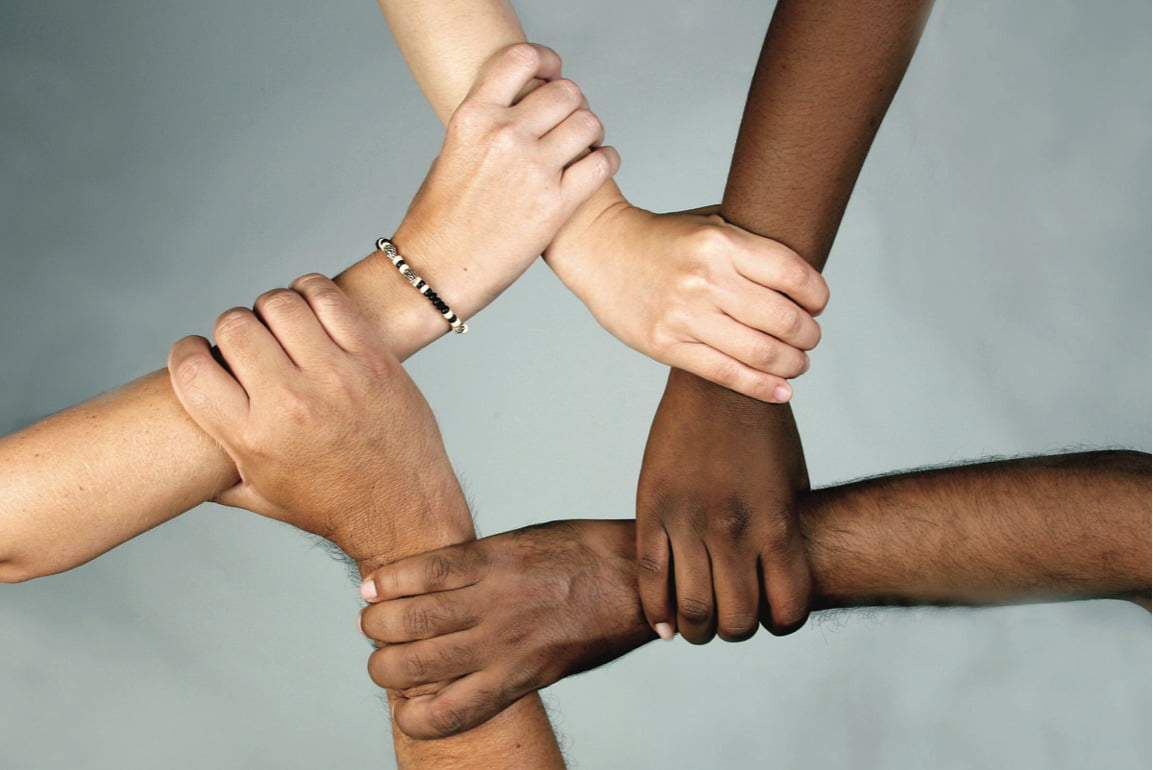The Powerful Connection Between Mental Health and Spirituality
Finding balance in today’s chaotic world means taking care of both mind and spirit. Here’s how the ancient wisdom of spiritual practices can support modern mental wellness.
A person meditating peacefully in nature

Have you ever noticed how a moment of quiet reflection can calm your racing thoughts? Or how connecting with something greater than yourself provides comfort during difficult times? You’re not alone.
I’ve spent years exploring the intersection of mental health and spirituality, and I’ve discovered that these two aspects of our well-being aren’t separate paths—they’re intertwined journeys that support and enhance each other.
In this guide, we’ll explore ten powerful ways spirituality can support your mental health, backed by both ancient wisdom and modern science. Whether you’re deeply religious, casually spiritual, or simply curious about these practices, there’s something here for everyone seeking greater peace and emotional balance.
1. Meditation: The Bridge Between Mind and Spirit
If there’s one spiritual practice that’s gained universal recognition for mental health benefits, it’s meditation. This ancient practice has crossed cultural and religious boundaries to become a cornerstone of modern wellness.
When I first tried meditation, I couldn’t sit still for even two minutes. My mind raced, my back ached, and I wondered what all the fuss was about. But with consistent practice—just 5-10 minutes daily—I began noticing subtle shifts: fewer racing thoughts, more patience in traffic, and a general sense of calm that wasn’t there before.
How meditation improves mental health:
- Reduces anxiety by activating the parasympathetic nervous system
- Lowers cortisol (stress hormone) levels
- Improves focus and attention
- Creates emotional regulation by increasing awareness of thought patterns
- Promotes neuroplasticity, helping the brain create new, healthier pathways
Try this: Set a timer for just 5 minutes. Sit comfortably, close your eyes, and focus on your breath. When your mind wanders (and it will), gently bring your attention back to your breathing. That’s it—no magical technique, just practice.
“The goal of meditation isn’t to control your thoughts, it’s to stop letting them control you.”
📱 Recommended tools: The Insight Timer App offers over 100,000 free guided meditations from various spiritual traditions, while Headspace provides a more structured approach for beginners.
2. The Power of Prayer: Ancient Practice, Modern Benefits
Prayer exists in virtually every spiritual tradition, taking countless forms across cultures. But beyond its religious significance, prayer offers tangible mental health benefits that scientists are just beginning to understand.
How prayer supports mental wellness:
- Creates a sense of connection, reducing loneliness
- Provides comfort during distress
- Offers a framework for processing difficult emotions
- Fosters hope and resilience during challenging times
- Creates moments of stillness in busy lives
A 2021 study published in the Journal of Religion and Health found that prayer practices were associated with lower levels of depression and anxiety, particularly during times of crisis. Researchers noted that the benefits appeared regardless of specific religious affiliation.
Prayer doesn’t need to be formal or religious. Simply expressing gratitude, setting intentions, or voicing hopes can create similar psychological benefits.
🔄 Connection point: Prayer and cognitive behavioral therapy (CBT) share interesting parallels—both involve recognizing thought patterns, reframing negative thinking, and creating meaning from experiences.
3. Mindfulness: Bringing Spiritual Awareness to Everyday Life
Mindfulness isn’t just about sitting in a lotus position—it’s about bringing complete awareness to ordinary moments. This practice, rooted in Buddhist tradition but now widely secularized, teaches us to experience life directly rather than through the filter of our thoughts.
Mental health benefits of mindfulness:
- Reduces rumination (repetitive negative thoughts)
- Improves emotional regulation
- Increases self-awareness
- Enhances the ability to respond rather than react
- Strengthens resilience to stress
Everyday mindfulness practices:
- Mindful eating: Truly tasting and appreciating each bite of food
- Mindful walking: Feeling each step connect with the earth
- Mindful listening: Giving someone your complete attention
- Body scan: Systematically noticing sensations throughout your body
- Five senses exercise: Noticing five things you can see, four you can touch, three you can hear, two you can smell, and one you can taste

A person mindfully enjoying a meal or walking in nature
📚 Resource recommendation: “The Power of Now” by Eckhart Tolle provides profound insights into living mindfully and breaking free from repetitive thought patterns.
4. Community Connection: The Healing Power of Belonging
Humans are social creatures, and spiritual communities have always recognized this fundamental need. Whether it’s a church congregation, meditation group, or yoga community, these connections provide crucial support for mental well-being.
Research from Harvard’s Study of Adult Development—the longest-running study on happiness—found that close relationships are the strongest predictor of both happiness and health, more so than wealth, fame, or social class.
How spiritual communities support mental health:
- Provide social connection, reducing isolation
- Offer support during life transitions and challenges
- Create accountability for personal growth
- Provide opportunities to contribute and feel needed
- Offer shared rituals that create meaning and stability
If traditional religious communities don’t resonate with you, consider alternatives like meditation groups, volunteer organizations, or even book clubs focused on spiritual or philosophical topics.
Table: Finding Your Spiritual Community
| Type of Community | Best For | Where to Find |
|---|---|---|
| Religious Congregations | Traditional faith practice, intergenerational connection | Local houses of worship |
| Meditation Groups | Mindfulness practice, quieter reflection | Meditation centers, apps like Meetup |
| Yoga Communities | The mind-body connection, gentle movement | Local studios, community centers |
| Nature Groups | Earth-centered spirituality, outdoor connection | Hiking clubs, environmental organizations |
| Service Organizations | Purpose-driven action, helping others | Volunteer Match, local nonprofits |
5. Gratitude Practices: Shifting Perspective, Changing Brain Chemistry
Gratitude lies at the heart of many spiritual traditions, from the Jewish practice of saying 100 blessings daily to Hindu rituals of giving thanks before meals. Beyond spiritual significance, gratitude practices have powerful effects on mental health.
I started a simple gratitude practice during a particularly difficult period in my life. Each night, I wrote down three things I was thankful for—even on terrible days when I could only manage “I’m grateful for clean water” or “I survived today.” Over time, I noticed my brain automatically began looking for positive aspects in situations.
Science-backed benefits of gratitude:
- Reduces depression symptoms
- Improves sleep quality
- Increases self-esteem
- Strengthens resilience
- Reduces social comparison
- Activates the brain’s reward pathway, releasing dopamine
Simple gratitude practices:
- Keep a daily gratitude journal
- Share three grateful moments at family meals
- Write thank-you notes (even if you don’t send them)
- Create a gratitude jar, adding notes throughout the year
- Practice grateful contemplation during everyday activities
✏️ Recommended tool: The Five Minute Journal provides a simple structure for daily gratitude practice.
6. Nature Connection: The Original Spiritual Practice
Long before indoor houses of worship, humans found spiritual connection in the natural world. This primal relationship with nature remains a powerful source of mental healing today.
How nature immersion benefits mental health:
- Reduces rumination and anxiety
- Lowers blood pressure and stress hormones
- Improves mood and self-esteem
- Enhances cognitive function
- Provides perspective on personal problems
A growing body of research supports what spiritual traditions have always known—time in nature heals the mind. Studies show that even 20 minutes in a park can significantly improve wellbeing, while longer forest immersions (known as “forest bathing” in Japan) create lasting benefits.
Simple nature connection practices:
- Walk mindfully in a natural setting, using all your senses
- Tend to plants or a garden
- Watch sunrise or sunset with full attention
- Observe animals or birds without distraction
- Feel the elements—rain on your skin, wind in your hair, earth beneath your feet
🌿 Pro tip: Nature connection doesn’t require wilderness. Urban parks, potted plants, or even nature documentaries can provide some benefits when wilderness isn’t accessible.
7. Breathwork: The Spirit in Every Moment
The word “spirit” comes from the Latin “spiritus,” meaning breath. This connection between breath and spiritual essence appears across traditions, from the Hebrew “ruach” to the Sanskrit “prana.”
Modern science confirms what ancient practices knew—conscious breathing directly affects mental state by influencing the autonomic nervous system.
Mental health benefits of breathwork:
- Activates the parasympathetic (“rest and digest”) nervous system
- Reduces anxiety and panic symptoms
- Improves focus and concentration
- Creates mind-body awareness
- Provides a portable self-regulation tool
Simple breathing practices:
- Box breathing: Inhale for 4 counts, hold for 4, exhale for 4, hold for 4
- 4-7-8 breathing: Inhale for 4 counts, hold for 7, exhale for 8
- Alternate nostril breathing: Close one nostril while breathing through the other, then switch
- Belly breathing: Place hands on the abdomen and breathe deeply into the belly
- Ocean breath: Slightly constrict the throat to create a soft sound while breathing
🧘♀️ Combine with: Try pairing breathwork with the Buddha Board, which allows you to create temporary water paintings, practicing impermanence and present-moment awareness.
8. Ritual and Ceremony: Creating Sacred Structure
From lighting Sabbath candles to performing tea ceremonies, rituals create structure and meaning across spiritual traditions. These practices aren’t mere superstition—they provide psychological benefits by creating predictability, transition markers, and symbolic meaning.
How rituals support mental health:
- Create stability and security through predictable patterns
- Mark transitions between different states or phases of life
- Process difficult emotions through symbolic actions
- Build community through shared experiences
- Connect present actions with meaningful traditions
Creating personal rituals:
- Morning routines to set intentions for the day
- Evening wind-down practices for better sleep
- Seasonal celebrations marking nature’s cycles
- Personal ceremonies for life transitions
- Meaningful ways to honor grief or celebrate joy
📖 Resource recommendation: “The Miracle Morning” by Hal Elrod offers a framework for creating powerful morning rituals that set the tone for each day.
9. Service to Others: Finding Meaning Beyond Self
Virtually every spiritual tradition emphasizes caring for others as a central practice. Beyond moral teaching, service provides profound mental health benefits by shifting focus outward and creating meaning.
Mental health benefits of service:
- Reduces depression by creating purpose
- Provides perspective on personal problems
- Creates social connection
- Builds confidence and self-efficacy
- Activates reward centers in the brain
Studies consistently show that volunteers experience lower rates of depression and higher reported life satisfaction. Interestingly, these benefits appear strongest when service is done without expectation of reward.
Service opportunities for mental wellness:
- Formal volunteering with organizations aligned with your values
- Informal helping within your community or neighborhood
- Skills-based service using your unique talents
- Environmental stewardship through conservation efforts
- Simple daily acts of kindness and consideration
Finding balance: While serving others is beneficial, it’s important to maintain boundaries. Service from depletion can lead to burnout and resentment. The most sustainable giving comes from a place of fullness.
10. Forgiveness Practices: Releasing the Weight of Resentment
Forgiveness stands at the heart of many spiritual traditions, from Christianity’s emphasis on forgiveness of sins to Buddhism’s practice of metta (loving-kindness). Beyond spiritual significance, forgiveness offers profound psychological benefits.
How forgiveness improves mental health:
- Reduces anxiety, depression, and hostility
- Lowers blood pressure and stress hormones
- Improves immune function
- Enhances self-esteem and hope
- Creates capacity for healthier relationships
It’s important to note that forgiveness doesn’t mean condoning harmful actions or remaining in unsafe situations. Rather, it’s about releasing the internal burden of resentment.
Approaches to forgiveness:
- Letter writing (not necessarily sent) to express feelings
- Perspective-taking exercises to understand contextual factors
- Compassion meditation focusing on universal human struggles
- Rituals of release, such as burning written grievances
- Working with a spiritual advisor or therapist for guidance with complex situations
📱 Guided practice: The Calm App offers guided forgiveness meditations that gradually build compassion for self and others.
Finding Your Path: Integrating Spirituality and Mental Health
The beauty of the spirituality-mental health connection lies in its flexibility. There’s no one-size-fits-all approach—what matters is finding practices that resonate with your beliefs, personality, and needs.
Questions for reflection:
- Which spiritual practices naturally appeal to you?
- What mental health challenges are you currently facing?
- How might specific spiritual practices address these challenges?
- What small step could you take today to explore this connection?
- Who might support you on this journey?
 Diverse people engaged in various spiritual practices
Diverse people engaged in various spiritual practices
When to Seek Professional Help
While spiritual practices offer powerful support for mental wellness, they complement rather than replace professional care for significant mental health conditions.
Consider professional help if you experience:
- Persistent sadness or anxiety interfering with daily function
- Thoughts of harming yourself or others
- Significant changes in sleep, appetite, or energy
- Inability to feel pleasure in previously enjoyable activities
- Unusual thoughts, beliefs, or perceptual experiences
Finding spiritually-sensitive care: Look for therapists specializing in “integrative therapy” or “spiritually-integrated counseling.” Organizations like the Association for Spiritual, Ethical, and Religious Values in Counseling (ASERVIC) can provide referrals to professionals who respect the spiritual dimensions of mental health.
Conclusion: The Journey Toward Wholeness
The separation between mental health and spirituality is a relatively recent development in human history. For thousands of years, cultures worldwide understood that caring for the mind meant nurturing the spirit as well.
Today, as we face unprecedented mental health challenges, reintegrating these aspects of wellness offers a path toward greater wholeness. Whether through ancient practices or modern adaptations, connecting with something beyond ourselves provides resilience, meaning, and hope.
I encourage you to approach this journey with curiosity and compassion. Start small, notice what resonates, and build gradually. The path to mental and spiritual wellness isn’t about perfection—it’s about presence and practice.
What spiritual practice might you explore today? How might it support your mental well-being? The journey of a thousand miles begins with a single step—and that step might be as simple as one conscious breath.



